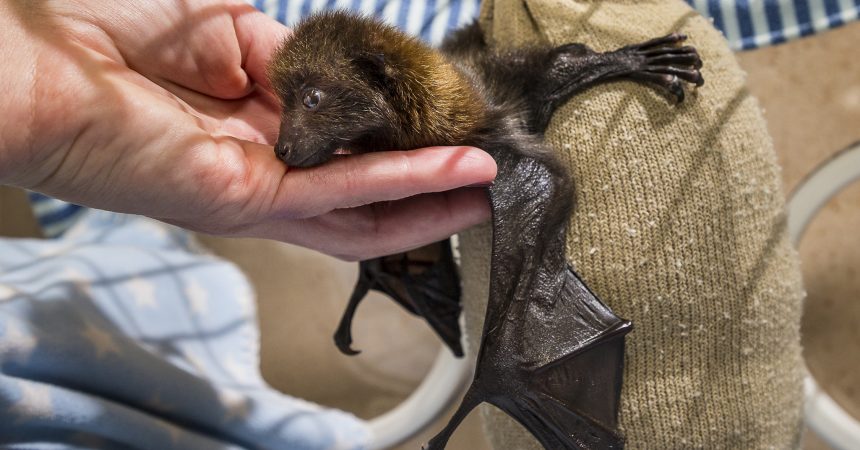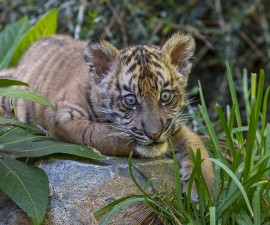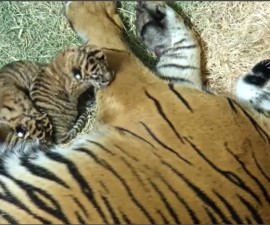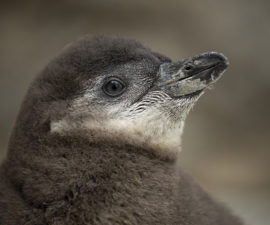Animal Care Staff Is Hand Raising Unique Baby, After C-section Delivery
There’s a new “miracle baby” at the San Diego Zoo Safari Park—and this time, it has wings. A 12-day-old Rodrigues fruit bat is being cared for at the Ione and Paul Harter Animal Care Center, and he is flying ahead of schedule in his development, despite a rough delivery. The male pup is the second Rodrigues fruit bat ever to be hand reared at the nursery: The first was his mother, Patty.
On Jan. 11, 2017, bat keepers at the Safari Park noticed Patty was behaving abnormally and didn’t greet animal care staff during their morning rounds. The first-time mother was having labor difficulties. Keepers transported Patty to the Paul Harter Veterinary Medical Center at the Safari Park, where veterinarians performed the first-ever emergency C-section on a Rodrigues fruit bat. Unfortunately, Patty did not survive. To ensure the pup’s survival, animal care staff is providing round-the-clock care until the pup is old enough to be introduced to the rest of the bat colony.
Hand raising this winged mammal is no easy task: It requires a very detailed regimen and lots of affection. The pup spends all of his time attached to a “sock mom” that mimics his mother. To properly regulate his body temperature and provide enough humidity to maintain pliable wings, the pup stays in a controlled incubator set between 85 and 89 degrees Fahrenheit, with 75 percent humidity. Animal care staff feed the youngster inside the incubator every two hours, and feedings can take up to 45 minutes. “He tends to fall asleep during his feedings,” says Kimberly Millspaugh, senior animal keeper. “Sometimes he wants to play or just wants attention, so getting him to finish can be challenging.” Careful feedings are required to avoid asphyxiation. The pup receives human infant formula because, similar to primates, this specialized species cannot synthesize vitamin C. Following every feeding, the youngster is bathed with a damp cotton ball, dried off and wrapped in a warm blanket, to mimic his mother’s cradling wings.
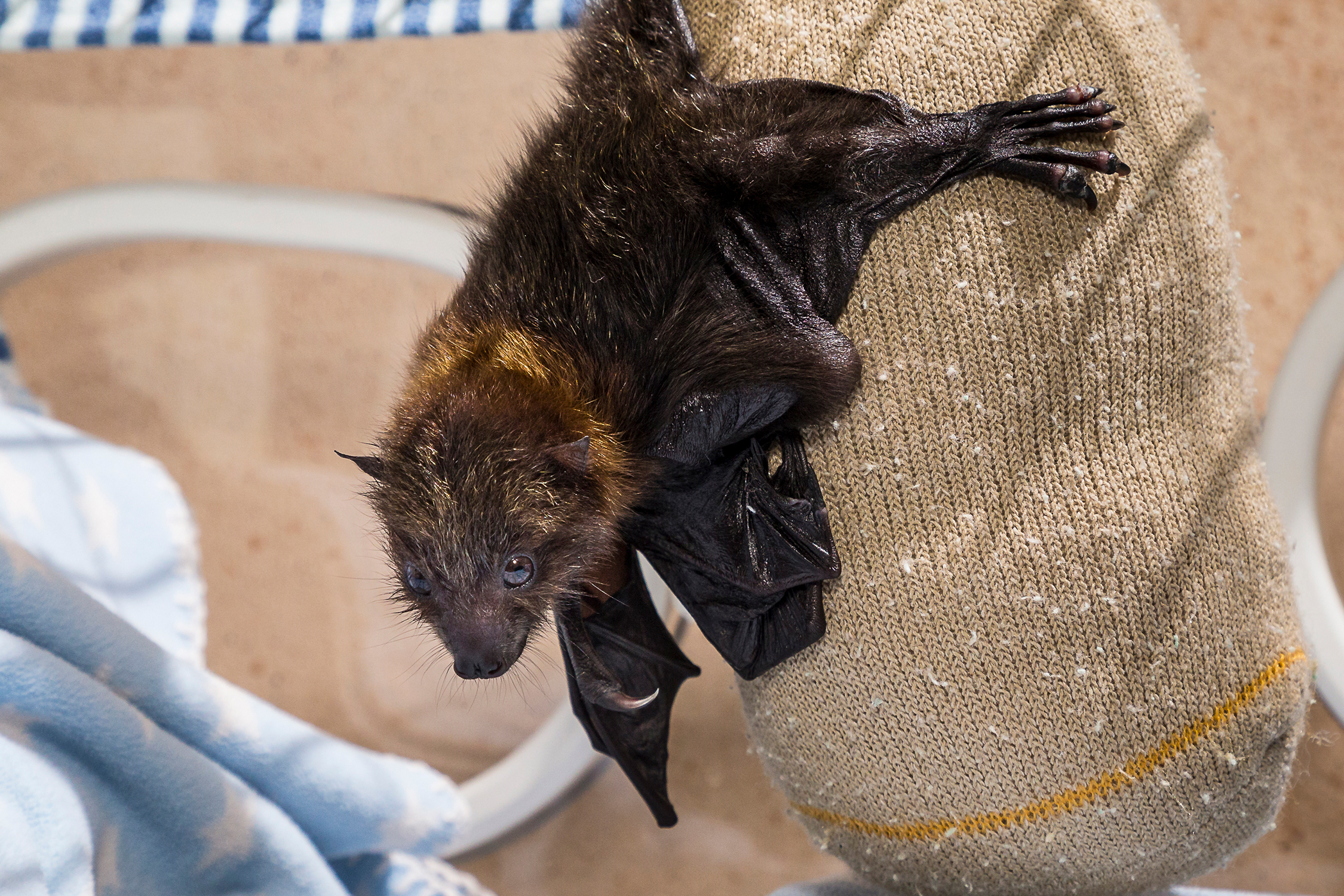
The critically endangered Rodrigues fruit bat is only found on Rodrigues Island, located about 300 miles east of Madagascar in the Indian Ocean. Most of this bat population is found in a single colony, at three roost sites they have used for more than 50 years. As local people cut down tamarind and mango trees to plant other crops, the favored food of these bats dwindled, as did their numbers. Following a cyclone in 2003, which destroyed habitat and swept bats out to sea, they numbered only about 4,000. The San Diego Zoo Safari Park has established a breeding colony as part of the Association of Zoos and Aquariums’ Species Survival Plan program, in order to create a sustainable population. San Diego Zoo Global has also partnered with the Rodrigues Environmental Educator Programme, working with school and community groups to support bat conservation.
Bats do more than earn their keep—insect-eating bats prevent diseases like West Nile virus and help save crops from pests, and fruit-eaters pollinate plants and disperse seeds. Bat droppings support bacteria useful to humans, including the production of antibiotics.
Visitors to the Safari Park will be able to view the bat pup in the Animal Care Center nursery in the near future. In the meantime, a colony of 17 Rodrigues fruit bats can be seen at the Safari Park’s Bat House.

